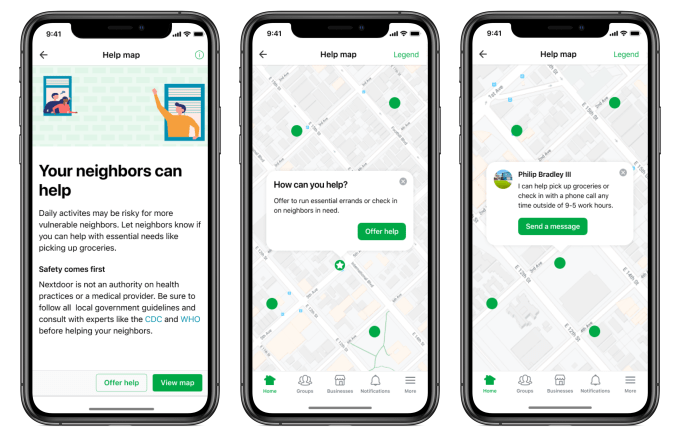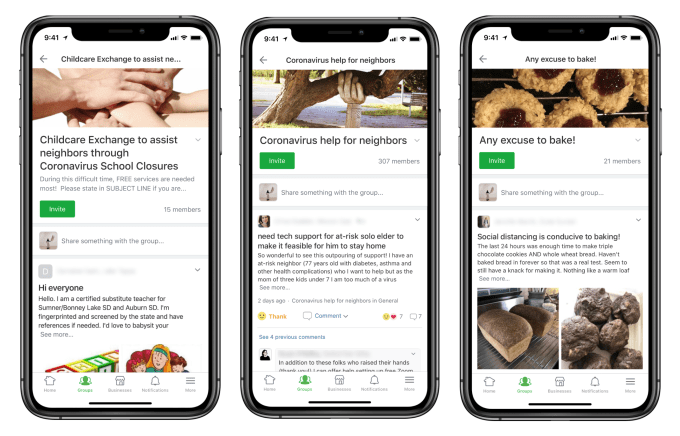Music
Trailers
DailyVideos
India
Pakistan
Afghanistan
Bangladesh
Srilanka
Nepal
Thailand
StockMarket
Business
Technology
Startup
Trending Videos
Coupons
Football
Search
Download App in Playstore
Download App
Best Collections
Technology
With most new social media startups seeming to dial in on specific communities to thrive in a still Facebook-dominated sphere, some of the more broadly focused social investments from top VCs are going into online gaming.
The latest is Mainframe Industries, a Nordic game studio building a massively multiplayer online title. The team doesn&t have much to share of what their title will actually look like gameplay-wise, they&re just saying ita sandbox MMO designed for cloud streaming built on Epic Games& Unreal Engine.
The startup, which has offices in Helsinki and Reykjavik, isn&t building cloud gaming tech but is instead building an MMO title thatdesigned from the get-go for streaming platforms like Google Stadia or Microsoft xCloud that beam a title to a userdevice from a cloud-hosted GPU. What does being a cloud-native game entail? Mainly, it seems to mean that they&re creating a social title that is as fully playable on mobile as it is on PC/console.
Building a robust mobile game that meets console/PC gamers expectations has been one of the more tenuous pursuits of the past decade, and one that has more often than not led to watered-down experiences. Mainframe CEO Thor Gunnarsson acknowledges that titles have sometimes catered to the &lowest common denominator,& but he believes that as game-streaming advances lower technical barriers, his team can focus wholly on solving the user experience challenges.
A big focus seems to be leveraging cross-play with more consistent experiences on differently powered devices thanks to cloud streaming. Gunnarsson believes his companyapproach to what occurs on the &social layer& of the title will be what differentiates them the most, though he is mum on details regarding what that will look like in the eventual release.
The startup has some big names supporting them in their quest. The startup announced today that they&ve closed an $8.1 million (€7.6 million) Series A round led by Andreessen Horowitz. Riot Games, Maki.vc, Play Ventures, Sisu Game Ventures and Crowberry Capital also participated in the round.
Andreessen Horowitz, already having bet big on Roblox$150 million Series G last month, has been quite active in placing bets on smaller gaming startups in the past year or so, most of which have been made by GP Andrew Chen.
Early last year, Chen directed a16zinvestment in Sandbox VR$68 million Series A, a startup aiming to make shared virtual reality experiences more common by building out physical retail locations in malls and shopping areas across the globe. This past August, Chen was also behind the firminvestment in Singularity 6, another MMO gaming startup thatlooking to build a &virtual society.& Chen was also behind the investment in Mainframe Industries .
&We believe that cloud-native games are poised to revolutionize the entertainment industry in the coming years, yielding entirely new gameplay experiences and business models,& said Chen in a press release announcing the startupraise.
In some part, these investments highlight the belief of venture capitalists that online games like Fortnite may represent the future of social networks. They are also, however, platform bets that are rooted in early content plays, which can be notoriously difficult to pick winners in.
While Gunnarsson was quick to discuss how important he believed their titlesocial platform would become, he was also just as quick to admit that building a great game was the most critical. &All of the platform stuff is ancillary to the prospect of creating a fun game, but we have really strong game design team.&
Games these days, particularly MMOs, are far from &finished& by launch. Gunnarsson plans to use this round of funding to reach a closed alpha of their title. He didn&t offer any timelines for launch, as they&re only in pre-production now, but did say it certainly won&t be coming out this year.
- Details
- Category: Technology Today
Read more: ‘Cloud-first’ game studio Mainframe raises $8.1M led by Andreessen Horowitz
Write comment (94 Comments)

GDC 2020 was cancelled last month due to the increasing spread of coronavirus - a situation that hasn't abated since that February 28 announcement. But despite the grim outlook for public events, organizer Informa Tech has announced that a smaller version of the convention, dubbed GDC Summer, will take place from August 4-6.
Had it gone ahead, GDC
- Details
- Category: Technology Today
Read more: GDC 2020 was cancelled, but GDC Summer is set to take its place this August
Write comment (95 Comments)Neighborhood social networking app Nextdoor has introduced two new features, Help Maps and Groups, to give people a way to better support one another during the coronavirus outbreak. The Help Map offers a way to coordinate aid between those in need, like the elderly and at-risk, and those willing to offer some form of assistance — like running errands or dropping off supplies, for example. Groups, meanwhile, allows smaller groups to network outside of the main feed.
Nextdoor had the technology for a map-based feature like the Help Map, as it today offers a map of real estate listings in its app and runs annual features, like the Halloween Treat Map or Holiday Cheer Map, which shows which homes are decked out with Christmas lights or other holiday decorations.
The Help Maps works similarly, but instead of listing your house, you&re able to list the services you&re willing to provide.
After updating the Nextdoor app to the latest version, you&ll find the new &Help Map& option under the More menu. From here, you can choose to either view the map or click a button to offer help to your neighbors.

Members who add themselves to the map can then detail the errands they could run or the other sort of assistance they can provide — like offering a daily check-in phone call, delivering groceries or fetching prescriptions.
Though most stores have begun offering special early morning hours for those at the most risk for COVID-19, limiting exposure by staying at home is the best option. The Help Map, therefore, isn&t just handy — ita potential life-saver.
Related to this, Nextdoor is also launching out of beta its Groups feature to users worldwide. Similar to Facebook Groups, NextdoorGroups allows communities to organize around topics, interests, providing aid or anything else. But unlike Facebook, which doesn&t have an official way to confirm people are who they say or where they live, Nextdoor validates users by phone or postal mail.
On Nextdoor Groups, neighbors can organize either by their specific neighborhood alone, with other neighborhoods nearby, or on a city-wide basis.

During the beta, neighbors were already beginning to use the feature for COVID-19 topics, including ways to unite communities, ways for parents to help kids stay connected during school closures and different hobbies that can be done while stuck at home.
Nextdoor usage grew as the coronavirus outbreak took off in the U.S. People turned to the app to share local news and information — like where toilet paper is available. The company said user engagement had grown by 80% in the last two weeks, particularly in hard-hit areas like Seattle and New York.
App downloads have grown, too, sending Nextdoor further up the App StoreTop Free Charts. In February, Nextdoor was ranking in the mid-to-lower 200s on the Top Free Chart, and was No. 168 as of Wednesday.
Conversations around COVID-19 on Nextdoor haven&t always been productive, however. Misinformation, bad health advice and more have spread on the app, which doesn&t have Facebook-sized resources for moderation.
&People on Nextdoor are freaking out about coronavirus,& said a recent BuzzFeed story. CNN also called the app a &hub of anxiety.&
As a result of its latest additions, Nextdoor usage is likely to spike even further — and hopefully refocus some of its members& mania on doing good and helping others, instead of inciting further panic.
The company, as of last fallclose of its $170 million in growth funding, said it reached 247,000 neighborhoods across 10 countries. Today, itavailable in 260,000 across 11 countries.

- Details
- Category: Technology Today
Read more: Nextdoor adds Help Maps and Groups to connect neighbors during the coronavirus outbreak
Write comment (91 Comments)

In an effort to bypass security software using AI and machine learning to detect malware, cybercriminals have begun to add text from news articles about the coronavirus to the TrickBot and Emotet Trojans.
Before distributing malware in phishing campaigns and other cyberattacks, developers often use a program called a “crypter' to obfuscate the m
- Details
- Category: Technology Today
Read more: Malware strains using coronavirus to avoid detection
Write comment (98 Comments)Today, Slack, a popular internal chat application, announced that it added 7,000 new customers between February 1 and March 18. That is 47 days. For context, Slack added 5,000 customers total in its preceding quarter, making its recent customer adds impressive.
Slack, like other companies whose products can help facilitate remote work, has seen a boom in usage due to the COVID-19 pandemic that has forced people to work from home. TechCrunch covered that fact this morning, saying that the companysuccess would depend on how many of its new users became customers. TodaySEC filing indicates that the newly public entity is succeeding in its efforts to monetize recent usage gains.
Shares of Slack stock are up 19% as of the time of writing, broadly higher in a day of positive trading. We&ll update this post at the end of trading to see where the firm wraps the day. The company was previously dinged by investors for not posting higher guidance during its most recent earnings report.
In its most recent quarter, the fourth of its fiscal 2020, Slack added 5,000 customers, growing from 105,000 at the end of its fiscal third quarter to 110,000. In seven weeks then, Slack has grown its customer count by 6.4%, or a hair under 1% each week.
Earlier today Microsoft announced that its competing Teams product had crested the 44 million daily active user (DAU) mark, a figure far greater than what Slack has announced to date. We might consider this new SEC filing as a way for Slack to not only flex its recent gains in front of its current investors, but also to combat Microsoftrecent PR push.
Teams added 12 million of its total DAUs from March 11 to March 18, underscoring the huge demand the two products are seeing today.
Slackproduct efforts
While Slack is seeing rising usage and, as we&ve learned today, rising commercial application of its service, the company is also turning out a good number of changes to its service.
Slack recently announced a simplified interface to make user experiences more smooth. While the company has felt more useful than ever before, with the massive move to work from home across the world, Slack claims that users have always relied heavily on the platform.
As for whether or not it can handle the remote work boom, Slack sounds confident. It had connectivity issues with calls last week, but resolved the problem within a day. (Teams has also had some recent outages.)
In a memo about business continuity, Slack said that &the demands on our infrastructure do not change when employees shift away from working together in the same office; there is no difference in load on our systems whether people are connecting from their office, a cellular network, or their homes.&
But nine hours a day for work is becoming more than just the singular use case for Slack.
Slack is often looked at as a haven for workplace communication. We&re seeing a bunch of more use cases, perhaps spurred by social distancing: support groups for founders, alumni groups and even groups for students who want to make better use of their time while taking classes remotely.
Todaynews, coupled with the trends coming out of this, positions Slack more as a virtual community than just another work productivity tool.

- Details
- Category: Technology Today
Read more: Slack adds 7K customers in 7 weeks amid remote-work boom, besting its preceding 2 results
Write comment (100 Comments)

The iPad Pro 2020 boasts the souped-up A12Z Bionic chipset, though it turns out it's not much faster than the A12X Bionic chip at the heart of the iPad Pro 11 (2018) and iPad Pro 12.9 (2018), according to early benchmarks.
Specifically, the new iPad Pro is just 1% faster than the year-and-a-half old models that it's replacing, as per a listing on
- Details
- Category: Technology Today
Read more: Apple's iPad Pro 2020 is said to be just '1% faster' than the 2018 version
Write comment (95 Comments)Page 1164 of 1418

 9
9





